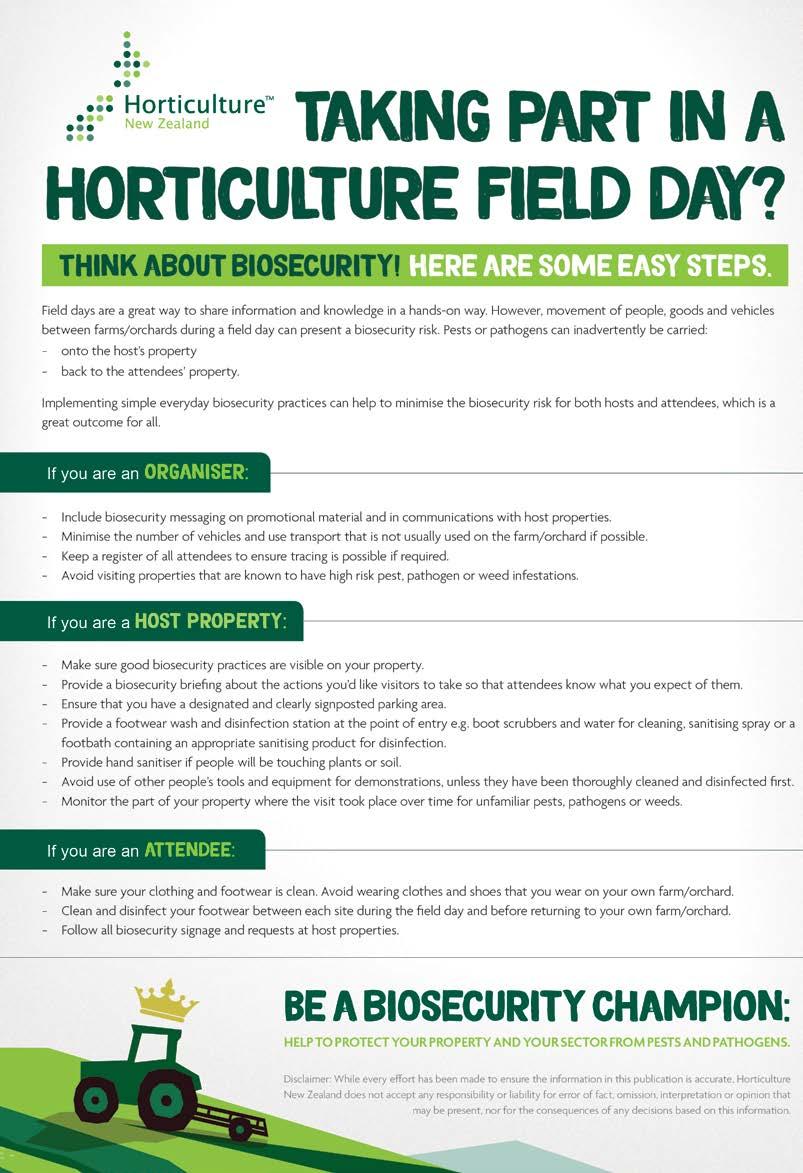
4 minute read
Roxy®apple creates a snazzy
Roxy®apple creates a snazzy opportunity
New fresh produce exporter Snazzy Fruit Company Ltd has kicked off the 2022 season in style by taking the exclusive rights to export Roxy®, an early season apple variety with strong appeal in Asia.
Based on feedback, Roxy® ticks all the right boxes in-market – it is early to market (harvested a week before Royal Gala). Its infatuating pinky-red colour, a taste profile well-suited to the Asian palate, and funky branding are making it an attractive proposition. In 2022, the Roxy apple was shipped to seven different markets of strategic importance.
Growers truly do love the Roxy variety because it is easy to grow and requires less sprays. They are able to kickstart their season earlier with labour. Roxy allows growers to differentiate their varietal mix with a trendy variety. And they can capture faster cashflow through early sales. In addition to this, growers have been very impressed with returns in the first year ($45.00 average for premium grade) despite all of the hurdles that new varieties can encounter during the early development phase. This has led to existing growers increasing their plantings, and a number of new growers in both the North and South Islands becoming official Roxy growers. Whilst majority of the Roxy volume is currently grown in the South Island, we see a huge opportunity for new plantings in the North Island to take the variety to another level due to even earlier harvest timing which means up to one month earlier to market.

2022 season photoshoot during harvest
Snazzy Fruit Company has made an exerted effort to be transparent with all of our growers, and given them a clear insight into the direction we want to head, and what we need to achieve that. Without growers we have nothing, so we understand the importance of instilling confidence in them and building trust. There is still significant room for growth in the New Zealand apple industry, particularly off the back of ever-changing market trends, emerging markets, and product awareness in Asia. In a lot of ways this is just the beginning.
Being a new company provides the opportunity and challenge for us to formulate fresh ideas, rather than carrying on with the status quo. This is what excites us and gets us up in the morning – it forces us to think outside the box in all facets of our business. In doing so, we get satisfaction from knowing we are able to make a difference to growers by adding value to their business. Snazzy Fruit Company has a number of new exciting initiatives in the pipeline that we plan to roll out in the near future.
For more information, contact Josh Parlane (Managing Director), jparlane@snazzyfruit.nz, snazzyfruit.nz
Taking part in a horticulture field day?
Think about biosecurity! Here are some easy steps.
Field days are a great way to share information and knowledge in a hands-on way. However, movement of people, goods and vehicles between farms/orchards during a field day can present a biosecurity risk. Pests or pathogens can inadvertently be carried: − onto the host’s property − back to the attendees’ property.
Implementing simple everyday biosecurity practices can help to minimise the biosecurity risk for both hosts and attendees, which is a great outcome for all.
If you are an organiser:
− Include biosecurity messaging on promotional material and in communications with host properties. − Minimise the number of vehicles and use transport that is not usually used on the farm/orchard if possible. − Keep a register of all attendees to ensure tracing is possible if required. − Avoid visiting properties that are known to have high risk pest, pathogen or weed infestations.

If you are a host property:

− Make sure good biosecurity practices are visible on your property. − Provide a biosecurity briefing about the actions you’d like visitors to take so that attendees know what you expect of them. − Ensure that you have a designated and clearly signposted parking area. − Provide a footwear wash and disinfection station at the point of entry e.g. boot scrubbers and water for cleaning, sanitising spray or a footbath containing an appropriate sanitising product for disinfection. − Provide hand sanitiser if people will be touching plants or soil. − Avoid use of other people’s tools and equipment for demonstrations, unless they have been thoroughly cleaned and disinfected first. − Monitor the part of your property where the visit took place over time for unfamiliar pests, pathogens or weeds.

− Make sure your clothing and footwear is clean. Avoid wearing clothes and shoes that you wear on your own farm/orchard. − Clean and disinfect your footwear between each site during the field day and before returning to your own farm/orchard. − Follow all biosecurity signage and requests at host properties.

If you are an attendee:
Be a biosecurity champion:
HELP TO PROTECT YOUR PROPERTY AND YOUR SECTOR FROM PESTS AND PATHOGENS.
Disclaimer: While every effort has been made to ensure the information in this publication is accurate, Horticulture New Zealand does not accept any responsibility or liability for error of fact, omission, interpretation or opinion that may be present, nor for the consequences of any decisions based on this information.










